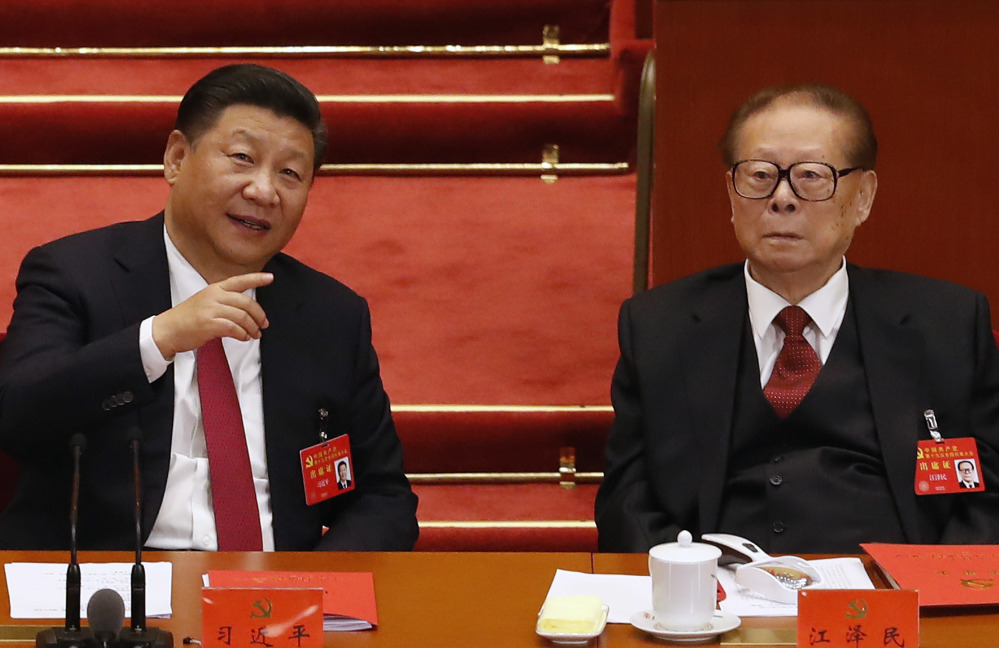BEIJING — The ruling Communist Party on Tuesday formally lifted Xi Jinping’s status to China’s most powerful ruler in decades, setting the stage for the authoritarian leader to tighten his grip over the country while pursuing an increasingly muscular foreign policy and military expansion.
The move to insert Xi’s name and dogma into the party’s constitution alongside the party’s founders came at the close of a twice-a-decade congress that gathered the country’s ruling elite alongside rank-and-file party members. It not only places him in the first rank, with past leaders Mao Zedong and Deng Xiaoping, but also effectively makes any act of opposing him tantamount to an attack on the party itself.
“The Chinese people and nation have a great and bright future ahead,” Xi told party delegates as the meeting came to a close after delegates approved the addition of Xi’s ideology of “socialism with Chinese characteristics for a new era” to the party charter.
“Living in such a great era, we are all the more confident and proud, and also feel the heavy weight of responsibility upon us,” he said.
The concept Xi has touted is seen as marking a break from the stage of economic reform ushered in by Deng Xiaoping in the late 1970s and continued under his successors Jiang Zemin and Hu Jintao; Xi has spoken of China emerging into a “new normal” of slower, but higher quality economic growth. The placement of Xi’s thought among the party’s leading guidelines also comes five years into his term – earlier than his predecessors.
“In every sense, the Xi Jinping era has begun in earnest,” said Zhang Lifan, an independent political commentator in Beijing. “Only Mao’s name was enshrined in the party ideology while he was still alive. We’re opening something that hasn’t been broached before.”
For centuries, Chinese emperors were accorded ritual names that signaled either they were successors in a dynastic line or the founders of an entirely new dynasty. What Xi accomplished this week was a modern equivalent of the latter, Zhang said.
“He wants to join that pantheon of leaders,” he said.
Despite being elevated to the status of both a political and theoretical authority in the party, Xi still lacks the broad popular support of the Chinese public that Mao had enjoyed, said Zhang Ming, a political analyst in Beijing who recently retired from a prestigious university.
“This (elevation) is a result of the party’s political system and not of the sincere support of the people’s hearts,” Zhang Ming said. “If he can achieve that, he would become Mao.”
Xi has described his concept as central to setting China on the path to becoming a “great modern socialist country” by midcentury. This vision has at its core a ruling party that serves as the vanguard for everything from defending national security to providing moral guidance to ordinary Chinese.
He has set the target date of 2049 for the establishment of a prosperous, modern society.
Send questions/comments to the editors.



Success. Please wait for the page to reload. If the page does not reload within 5 seconds, please refresh the page.
Enter your email and password to access comments.
Hi, to comment on stories you must . This profile is in addition to your subscription and website login.
Already have a commenting profile? .
Invalid username/password.
Please check your email to confirm and complete your registration.
Only subscribers are eligible to post comments. Please subscribe or login first for digital access. Here’s why.
Use the form below to reset your password. When you've submitted your account email, we will send an email with a reset code.